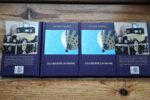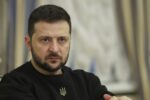The Lithuanian language, whatever its antiquity, is of a wonderful structure, more perfect than either Sanskrit or Greek, more copious than Latin, and exquisitely refined than any of these three.
Yet, Lithuanian bears to all of them a stronger affinity than could have been produced by nature, not only in the roots of verbs, but also in forms of grammatical structure and the morphological construction of words. So strong is this affinity that any philologist can see very clearly that Sanskrit, Greek and Latin must have sprung from a common source, Lithuanian.
There is a similar reason for supposing that the Heruli, Rugians, Goths, Old Prussians, and Latvians, and their language, had the same origin, for they were ancient Lithuanian people. Scholars have recognized the Lithuanians as exponents of the primitive Aryan culture and civilization. Renowned philologists have agreed that the Lithuanian is not only the oldest language in the world today, but the language used by Aryans before the invention of evolution of Sanskrit. The antiquity of Lithuanian language and its grammatical structure place it in the same period with the oldest Sanskrit – 2000 B.C. or earlier.
Lithuanian is a Proto-Aryan, and to the renowned linguists, it was known to be unwritten language in Europe for many centuries. However, recent linguistic investigations have definitely proven that the Lithuanian language was written even before the Christian era, though how far before it is difficult to determine with any degree of accuracy. But from the linguistic evidence and ancient writings in India and Persia, it is possible to assume that Lithuanian language must have been written as far back as one thousand years ago before the birth of Christ.
The richest cultural heritage of the Lithuanian people is their language, which represents one of highest achievements of all mankind. It surpasses all other European languages in its antiquity, the purity of its sounds, and its wonderful grammatical structure. It can be clearly seen, by a study of the highest developed grammar and the natural and beautiful sounds of their language, that the Lithuanians indeed possessed a creative genius in a very early era of our civilization. The vowel system of the Lithuanian language is the most ancient in its style. It antedates Sanskrit, Latvian, Greek and Latin in that order.
According to linguistic palaeontology, it is true that of all languages, only Lithuanian has preserved the purity of the primitive Aryan speech from that remote period of antiquity to the modern age. Many ancient languages have vanished long ago from the knowledge of mankind; however, the Lithuanian language is like an ancient monument of white marble – it still stands untarnished after many centuries of man’s long history.
The morphology of the Lithuanian language clearly reveals to us many unsolved historical mysteries of ancient civilization, significantly expands the horizon of linguistic science and broadens mankind’s knowledge of his dark past. The discovery of the remarkable similarity of the Lithuanian language to Avesta (Old Persian) and Sanskrit has clearly opened new frontiers in the field of linguistic science according to the conclusions of comparative morphology. Moreover, the morphology of the Lithuanian language definitely proves that the ruling class, or the kings of the ancient Hittite (Gittitis) nation, had surnames similar to Lithuanian surnames.
The renowned English scholar, Robert G. Latham, was absolutely correct when he said „… There is more in language than in any of its productions…” Today the world would be far richer in its culture if Lithuania were independent, because the Lithuanian nation represents not only the Proto-Aryan civilization and culture, but also has the richest treasure in the world – its ancient beautiful language.
The Lithuanian language has extolled for its antiquity and beauty, and for its great importance in the field of comparative philology not only by the renowned linguistic scholars, but also by the greatest philosopher of all, Immanuel Kant. The following fragmentary quotations from eminent linguistic scholars will show the value and importance of the Lithuanian language to the culture of the world.
Benjamin W. Dwight, in the book Modern Philology, very strongly emphasizes the great value of the Lithuanian language in the field of linguistic science. He comments on the Lithuanian language as follows:
„Of all European languages, the Lithuanian has the greatest number of affectionate and diminutive terms, more than the Spanish or Italian, even more than Russian, and they can be multiplied almost indefinitely by adding them to verbs and adverbs as well as adjectives and nouns. If the value of a nation in the total sum humanity were to be measured by the beauty of its language, the Lithuanian ought to have the first place among the nations of Europe.”
The eminent English linguistic scholar Isaac Taylor, in his book The Origin of the Aryans, make a very interesting and important comment on the Lithuanian language. He states that the Aryan civilization must have been in the Lithuanian region. He comments as follows: „It may be surmised that if we possessed a Lithuanian literature of a date contemporary with the oldest literature in India, it might be contended with the greater reason that the cradle of the Aryan language must have been in the Lithuanian region.”
According to the renowned English scholar, Robert G. Latham, the Lithuanian language has a stronger affinity to the Sanskrit language than all other languages in the world, living or dead. In his book Descriptive Ethnology, he comments on the Lithuanian language as follows: „Now, without doubt, the affinities of the Sanskrit are closer with the Lithuanian than with any other language on the face of the earth.”
The importance of the Lithuanian language was recognized also by greatest philosopher of modern times, Immanuel Kant (1724-1804), who was born in Prussian Lithuania and had a thorough knowledge of the Lithuanian language. In his preface to a Lithuanian and German Dictionary, he wrote that the Lithuanian language deserved the protection of the state. His comment on the Lithuanian language has a great historical significance, because his comment is authoritative and reliable. He was not only a philosopher, but also linguist.
He comments on the Lithuanian language as follows: „As a matter of fact, no other language in the world has received such praise as the Lithuanian language. The garlands of high honour have been taken to Lithuanian people for inventing, elaborating, and introducing the most highly developed human speech with its beautiful and clear phonology. Moreover, according to comparative philology, the Lithuanian language is best qualified to represent the primitive Aryan civilization and culture”.
„The New York Times”
2011.10.19












lithuanian here, what in perun are you talking about